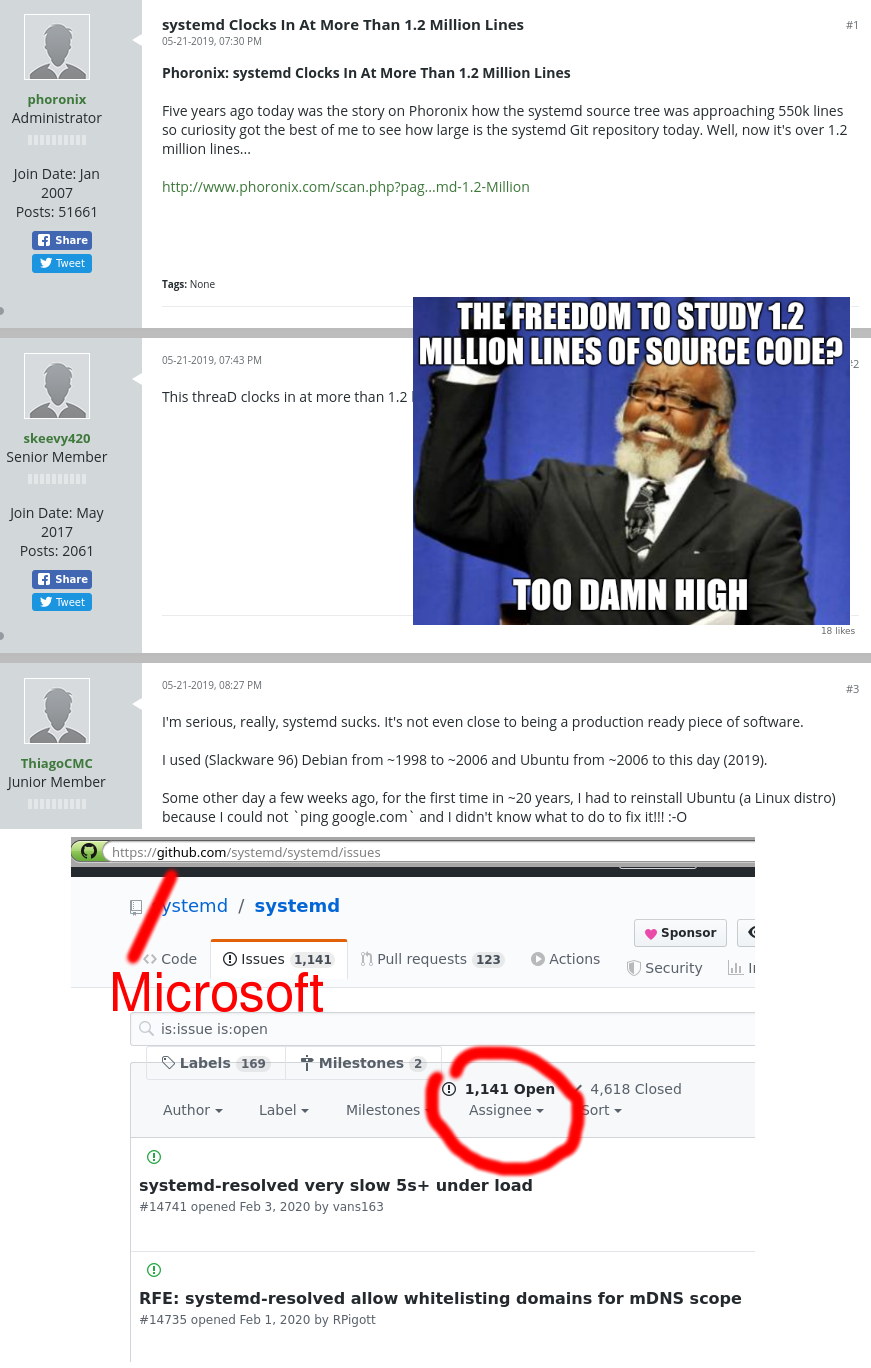

WE NEED to talk about an issue that more and more people have spoken about in recent years. It's not a case of "trolling" or "bashing"; there are technically legitimate concerns therein.
"Recently, as in last week, Richard Stallman alluded to Rust as moving to fast. He said it would help to fork or branch out Rust (maybe call it "crust" to avoid trademark-related restrictions), then maintain that instead. So it seems clear Stallman is at least vaguely aware of those things."If this is the best we have, what level of freedom are we truly enjoying/exercising at the level of studying, modifying, and redistributing code? After all, most of us need a "Big Browser" (at least sometimes, e.g. for online banking) and a kernel with extensive hardware support. How many of us can feasibly change those and keep up with new versions/releases? How many projects can do so? Not even Gentoo or Debian have enough developers to study and garden millions of lines of such code. Not without a salary and full-time job.
Free software will need to cope with or handle this issue. A good start would be at least talking about those sorts of issues. Without talking about them there will be no widespread recognition. Recently, as in last week, Richard Stallman alluded to Rust as moving to fast. He said it would help to fork or branch out Rust (maybe call it "crust" to avoid trademark-related restrictions), then maintain that instead. So it seems clear Stallman is at least vaguely aware of those things. This talk is not online yet, but certainly it will be some time soon (I watched it live, but exact quotes require something other than a livestream). There are several other issues with Rust (we covered some before), but they're a footnote in the context of what Drew DeVault wrote a few months back. ⬆